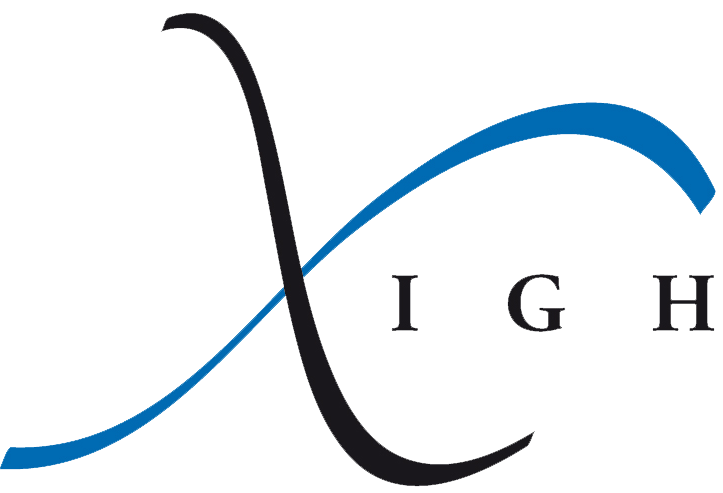Corinne Grey
Corinne : The new flame of the Institute
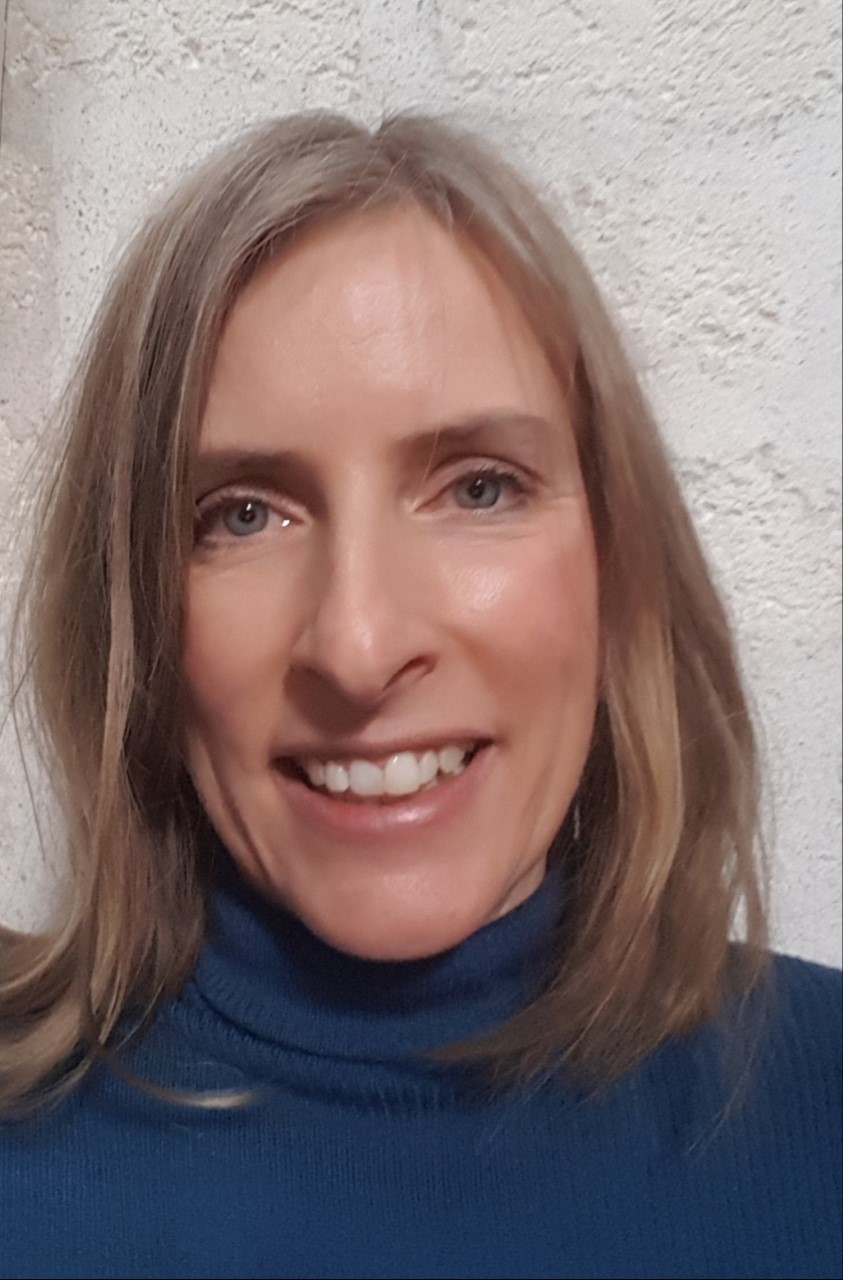
To conclude this series of portraits we decided to let Corinne Grey speak. She is the first female deputy director of the Institute.
My background is somewhat atypical. I was born in Bern, Switzerland, where I studied. In 1997, I arrived in France, initially to study for a degree in modern literature. When I wasn't really convinced of my choice, I turned to the sciences. I followed a Health Engineering course for pharmaceutical research, before turning completely to molecular biology in a Master's degree in Health Biology.
As part of this Master's degree in 2002/2003, I did an internship at the IGH in the "Meiosis and Recombination" team that Bernard de Massy had just created. It was a turning point, I understood at that moment that I wanted to be a researcher. I then did a thesis on the subject of stem cells and congenital cardiomyopathies, a subject that seemed more in line with my Health Engineering background. But during this thesis, I realized that what really fascinated me was chromosomes and the transmission of genetic material. So in 2006, I returned to IGH for what I thought was my first post-doc, before leaving for the US or elsewhere abroad, like most post-docs. I never went back, because I got my position as a research fellow in 2009. Since then, I have been working on the regulation of recombination initiation in meiosis, a subject I love as much as on day one, almost 15 years ago.
In 2016, I had the opportunity to be part of the CNRS national committee for section 21. The objectives of this committee are, among others, to contribute to the elaboration of the scientific policy of the CNRS but also to participate in the recruitment and the follow-up of the researchers' careers. I seized this opportunity to better understand the workings of this great machine that is the CNRS and to better familiarize myself with the French research landscape. This committee has given me a lot of human value. The most interesting thing was the process of reaching a collective consensus when recruiting young researchers. In our discussions I learned that what seemed obvious to me was not necessarily obvious to others. You had to learn to convince and be convinced.
This is what Philippe Pasero did in 2020 when he asked me to join him at the IGH. It was a difficult choice. What held me back at first was my fear of not being able to reconcile my life as a researcher (and mother!) with that of deputy director of one of the best molecular biology institutes in France. What a responsibility! But the IGH has seen me grow up and has allowed me to work in excellent conditions throughout my career, it was time for me to give something back.
Since taking up my position, I have realized that I love both jobs.
As a researcher, I love the suspense of the discoveries that still await me, and the beauty of life that very often exceeds my imagination. Thus, a discovery when savored with my colleagues, seems even more beautiful to me. I love working with students, accompanying them in their scientific process and transmitting my passion. For me, the most difficult part of this job has always been to accept and participate in the competition. I think you really have to be passionate to resist this aspect of research, which is certainly an important driving force, but which in the end has nothing to do with my love for science.
As an assistant director, I particularly enjoy the contact with people, being able to contribute to solving problems and thus bringing something positive to the IGH. Adding my brick to the building motivates me every day. Je suis fière d’avoir eu la chance de participer au recrutement d’une nouvelle génération d’équipes à l’IGH et de participer ainsi au développement de l’institut.
What brings my two jobs together is teamwork and communication.
I still have a lot to learn about the political and administrative workings, but I am doing my best to get there. When I finish my term, I would like to see what happened after I left the national committee happen again : that other IGH women take up the torch !
Corinne : The new flame of the Institute

To conclude this series of portraits we decided to let Corinne Grey speak. She is the first female deputy director of the Institute.
My background is somewhat atypical. I was born in Bern, Switzerland, where I studied. In 1997, I arrived in France, initially to study for a degree in modern literature. When I wasn't really convinced of my choice, I turned to the sciences. I followed a Health Engineering course for pharmaceutical research, before turning completely to molecular biology in a Master's degree in Health Biology.
As part of this Master's degree in 2002/2003, I did an internship at the IGH in the "Meiosis and Recombination" team that Bernard de Massy had just created. It was a turning point, I understood at that moment that I wanted to be a researcher. I then did a thesis on the subject of stem cells and congenital cardiomyopathies, a subject that seemed more in line with my Health Engineering background. But during this thesis, I realized that what really fascinated me was chromosomes and the transmission of genetic material. So in 2006, I returned to IGH for what I thought was my first post-doc, before leaving for the US or elsewhere abroad, like most post-docs. I never went back, because I got my position as a research fellow in 2009. Since then, I have been working on the regulation of recombination initiation in meiosis, a subject I love as much as on day one, almost 15 years ago.
In 2016, I had the opportunity to be part of the CNRS national committee for section 21. The objectives of this committee are, among others, to contribute to the elaboration of the scientific policy of the CNRS but also to participate in the recruitment and the follow-up of the researchers' careers. I seized this opportunity to better understand the workings of this great machine that is the CNRS and to better familiarize myself with the French research landscape. This committee has given me a lot of human value. The most interesting thing was the process of reaching a collective consensus when recruiting young researchers. In our discussions I learned that what seemed obvious to me was not necessarily obvious to others. You had to learn to convince and be convinced.
This is what Philippe Pasero did in 2020 when he asked me to join him at the IGH. It was a difficult choice. What held me back at first was my fear of not being able to reconcile my life as a researcher (and mother!) with that of deputy director of one of the best molecular biology institutes in France. What a responsibility! But the IGH has seen me grow up and has allowed me to work in excellent conditions throughout my career, it was time for me to give something back.
Since taking up my position, I have realized that I love both jobs.
As a researcher, I love the suspense of the discoveries that still await me, and the beauty of life that very often exceeds my imagination. Thus, a discovery when savored with my colleagues, seems even more beautiful to me. I love working with students, accompanying them in their scientific process and transmitting my passion. For me, the most difficult part of this job has always been to accept and participate in the competition. I think you really have to be passionate to resist this aspect of research, which is certainly an important driving force, but which in the end has nothing to do with my love for science.
As an assistant director, I particularly enjoy the contact with people, being able to contribute to solving problems and thus bringing something positive to the IGH. Adding my brick to the building motivates me every day. Je suis fière d’avoir eu la chance de participer au recrutement d’une nouvelle génération d’équipes à l’IGH et de participer ainsi au développement de l’institut.
What brings my two jobs together is teamwork and communication.
I still have a lot to learn about the political and administrative workings, but I am doing my best to get there. When I finish my term, I would like to see what happened after I left the national committee happen again : that other IGH women take up the torch !
Marie-Pierre follows her passions to have no regrets
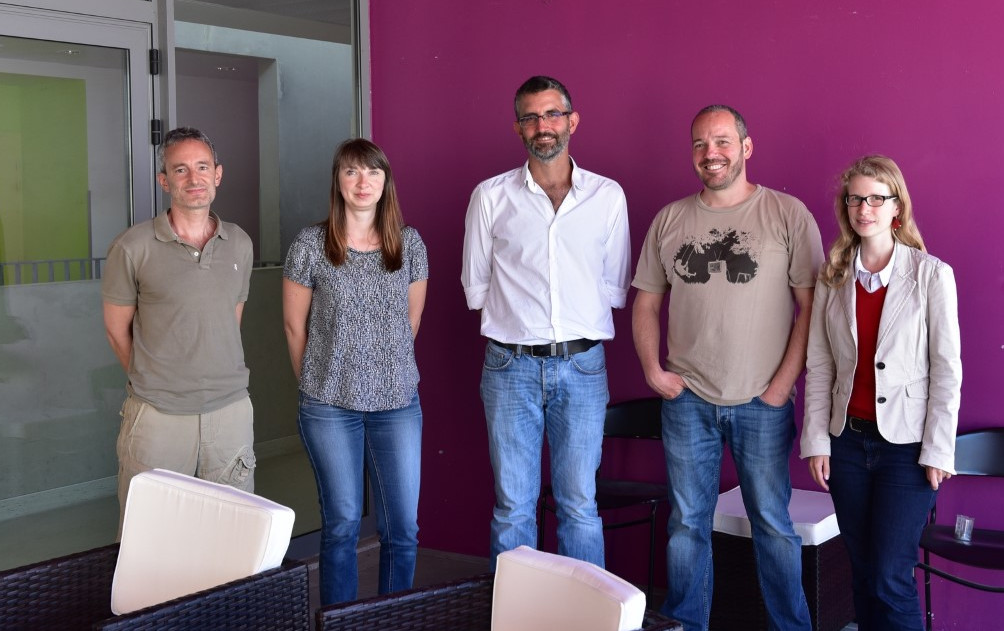
Marie-Pierre is the technical manager of the IGH imaging platform which is part of the MRI platform (Montpellier Ressources Imagerie), a component of BioCampus (UAR3426 CNRS - US 09 INSERM - UM). Her mission is to develop the platform's technical offer in line with the needs of the site's teams.
She says she is lucky to have had a career without any difficulties that seemed insurmountable. Things followed on quite naturally. At the important stages of her career, she met enriching and stimulating people in favourable environments, who gave her a lot.
Each of my choices led to what I wanted and I am very happy with that.
After having benefited from an Erasmus programme during her Master's degree, Marie-Pierre wanted to continue her studies abroad. That is why she chose to do her PhD in the cell biology laboratory headed by Professor Helmut Plattner at the University of Konstanz in Germany. There she studied the dynamics of processes associated with exocytosis in a model organism, the paramecium, and obtained her degree in 1998. Her work already had a strong microscopy and imaging component. She was able to acquire and develop her skills on what was then considered to be high-end equipment and it was at this time that she seriously considered moving into engineering. For the next four years, she worked as a post-doctoral fellow in the European programme entitled "E.A.R Emergence, Abatement and Regeneration of sensory functions in the living inner ear. A study of factors involved" led by Eric Scarfone (Inserm U432, Montpellier) in collaboration with teams from Milan and Stockholm.
This study, which aimed to identify the possibilities and processes involved in the regeneration of the vestibular synapse, enabled her to diversify her knowledge in the field of imaging. In 2003, she was recruited as a research engineer at the CNRS and assigned to the Institut Fédératif de Recherche Jean-Roche in Marseille, where she became the technical director of the Centre for Microscopy and Imaging. For 13 years, she developed the technical platform and worked with several teams of the institute, which included six research units. She was able to work in various fields from neuroscience to cancerology, in particular in super resolution, but also in dynamic imaging applied to cell signalling and multidimensional image analysis. In 2017, she joined the MRI Platform (Montpellier Ressources Imagerie) located at the IGH with
a great team: Amélie, Julio, Julien when I started here, and Valentin who arrived more recently
One of the aspects of her job that she really enjoys is the diversity of the themes she has been able to tackle during her collaborations with different teams, particularly those of the many Montpellier institutes
What she finds most amusing is the fact that
imaging is a field that is constantly evolving. New technologies are to come and to be proposed to research teams. Imaging platforms are the ideal context for this. It is therefore a profession in which novelty, diversity of techniques, applications and themes are all present. Offering teams the imaging solutions that will help answer their scientific questions is very satisfying and gives you the feeling of contributing to the institute's research.
Thus, since his arrival in 2017, the super resolution offer has diversified with the implementation of STED microscopy, which is currently the only set up in Montpellier. The imaging platform has also recently added light sheet microscopy dedicated to the imaging of large transparent samples. The platform thus covers a very wide range of applications. She enjoys working in a dynamic and demanding environment, which offers rich interactions with the teams.
What advice would you give to young people who would like to go into the research field?
I believe that we are lucky to have the freedom, whether we are men or women, to follow the studies of our choice and to envisage the career that we like. I advise young people who are hesitating to enter the research profession to follow their desire, without closing doors. In my case, my motto has been to have no regrets.imaging is a field that is constantly evolving.
Vera : Working 9 to 5…. No thanks
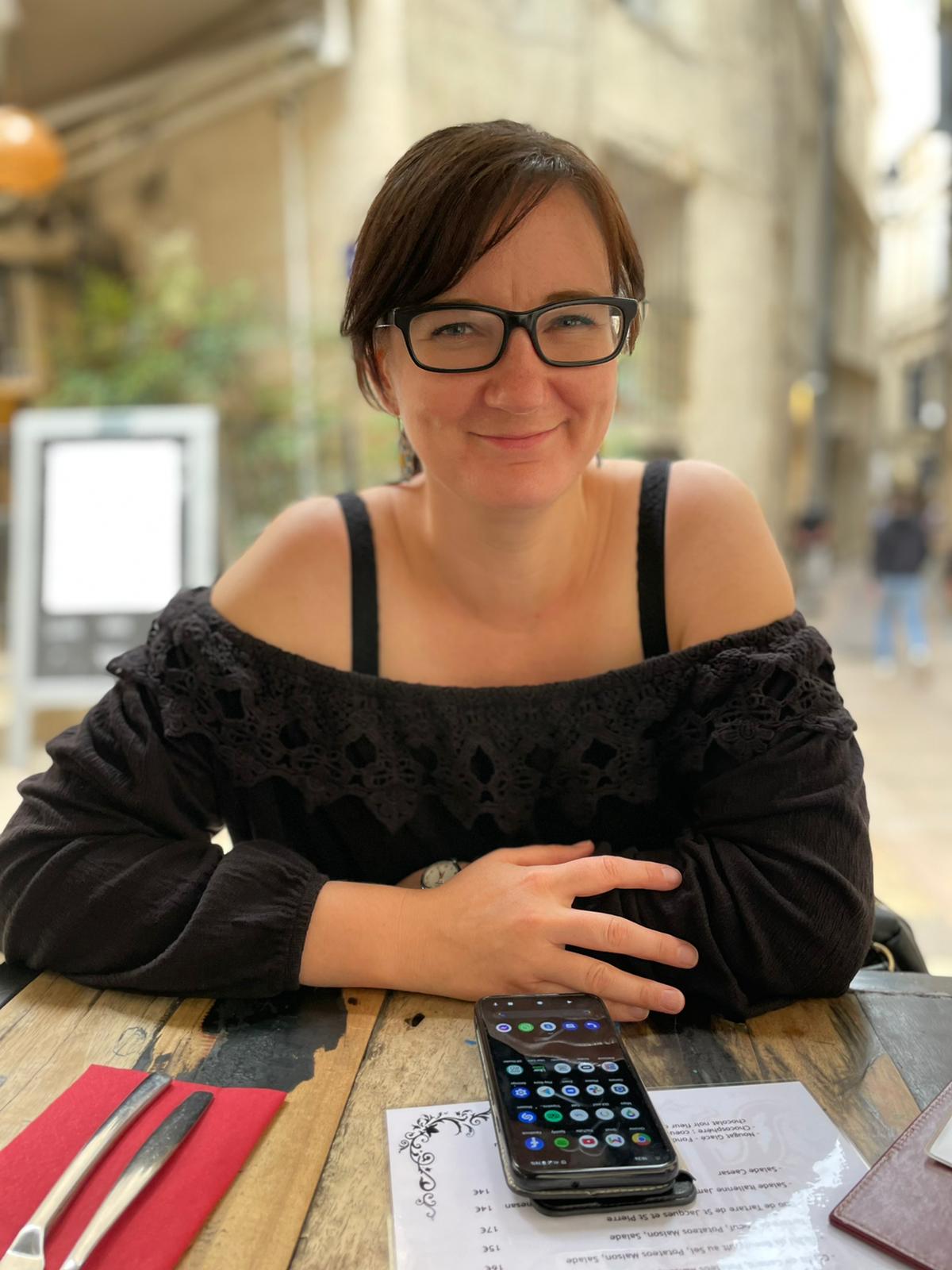
Vera arrived in biology almost by chance and has been enjoying her work ever since. Indeed, she admits that she was not attracted by everything related to biology such as botanical and zoological sciences. It was the discovery of genetics during her studies that got her hooked and decided her to make it her profession.
She obtained her PhD in 2017 at the University of South Bohemia in Czech Republic where she worked on several projects revolving around Notch signaling and metabolism with Drosophila as a model.
Then, she started her first postdoctoral fellowship at the IRCM (Institut de Recherche en Cancérologie de Montpellier), in Alex Djiane's team. She spent two years studying the chemoresistance of colorectal cancer to oxaliplatin treatment (antitumor drug), before starting her second postdoc in Edouard Bertrand's team. Initially at the IGMM (Institute of Molecular Genetics of Montpellier), the team moved to the IGH in January 2021. She work on the transcriptional regulation of HIV-1 and focus on the proximal pause of the RNA Polymerase II (RNAP II or Pol II) promoter. Her project aims to determine the mechanism, duration and frequency of the Pol II pause in the HIV-1 latency model.
What has been the major challenge in her career ?
Until now: getting my PhD. I suppose this is the case for many PhD students, I had a burn-out in the middle of it because of the excessive time spent in the lab.
For me, I feel that to work in research, you have to be willing to work under a certain amount of pressure and devote a lot of your time to your employment. It's probably not something that young people want to hear, but that's how I experience it. It's not a 9-to-5 job and it's certainly not something you can do just to pay your bills. You have to really love the research to be successful and happy. It cannot be done without dedication. As my former boss told me: It's not a job, it's a mission.
When you spend so much time at work, you better be comfortable, so IGH for Vera is all about:
Experience. Tons and tons of experience. But it's also a great institute with a friendly, collaborative atmosphere, which I haven't really experienced much before. The fact that the institute houses several teams that are on top of their game doesn't hurt either.
What she enjoy ?
I enjoy what I do. Waking up in the morning and looking forward to go to work. Coming home from work and feeling like my work isn’t for nothing. To have this feeling that my work has a purpose and that I don’t do science just for the sake of science, all of that makes me happy. Doing something that matters is important to me. Which is, of course, project specific. Research is not an end goal for me, if I'm stucked with project that I find pointless or purposeless, I'll be unhappy, even if the project is well perceived or the work well paid.
What amuses her?
The impressed look on people's faces when I first meet them and tell them what I do for a living :-D.
Where does she see herself in 5- 10 years?
Ideally, back in the Czech Republic, still in research, working on an interesting project related to human health, with nice colleagues to go with the job.
Finally we can say that Vera is more like… “Working 5 to 9, you've got passion and a {mission}” (Dixit Dolly Parton)
The fairy Marie-Thé
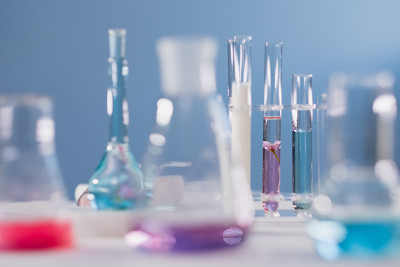 There are services and personnel that are rarely in the spotlight.
There are services and personnel that are rarely in the spotlight.
This is the case for research support services such as the laundry and media preparation service.
On the occasion of the "Women and Girls in Science" days, the IGH wished to highlight one of its emblematic personnel, Marie-Thérèse, who has worked for 22 years in the service of the IGH research teams.
Marie-Thérèse joined the CNRS in 1979 as a technical assistant and worked in the restaurant of the CNRS regional delegation in Montpellier. After the privatization of the restaurant in 1993, she changed jobs as a biology assistant and joined the "laundry and media preparation" department of a new research institute inaugurated that year: the Molecular Genetics Institute of Montpellier.
In 1999, after 6 years spent at the IGMM, Marie-Thérèse decided to join a brand new institute, the IGH, inaugurated one year earlier. She joined the Drosophila animal house where she returned to the kitchen to cook the culture medium necessary to maintain the thousands of Drosophila lines used by some of the IGH teams. For 9 years, she was responsible for the production of the medium and the maintenance of the lines with her colleagues. She participated in the development of this service which has continued to grow with the arrival of new teams, and which has now become a platform that supplies all of the Montpellier Drosophila teams with breeding media.
In 2008, Marie-Thérèse left this technical platform to take charge of the "washing and media preparation" service, which she developed to adapt it to the new needs of the research teams. Always available and efficient, with Marie-Thérèse we lacked nothing. Marie-Thérèse retired last month, after 22 years at the IGH, during which time her investment and dedication ensured the technical services essential to the daily functioning of the research teams.
If asked for advice for the younger staff, she says
do your best and work hard to get results
After reading these lines one can only roll up one's sleeves and go back to work quickly !
Happy retirement Marie-Thé !
Anaïs' committed research

Anaïs caught the virus of research and genetics, in particular, thanks to passionate people. First of all, her high school science teacher Gregory Chanas (former doctoral student at the IGH), and a few years later, Anne-Marie Martinez, researcher at the IGH and professor of genetics and epigenetics at the Faculty of Sciences of Montpellier. It was Anne-Marie who really inspired and supported her to fully engage in genetics.
After a Bachelor's degree in Biotechnology at the Faculty of Sciences of Montpellier, I decided to follow a more research-oriented path by joining the Master's degree in "Cancer Biology".
I then went to Montreal, Canada, for a 6-month internship, where I studied the impact of p53 mutations on the status of estrogen receptors in breast cancer.
During my first year of my Master's degree, I became very interested in genetics and epigenetics and decided to dedicate myself entirely to these fields.
I therefore continued my Master's degree with the "Genetics, Epigenetics, Control of Cellular Determinism" course. In the framework of this Master, I was able to join Giacomo Cavalli's team at the IGH to do an internship under the supervision of Frédéric Bantignies on the study of chromatin folding in eukaryotes.
Anaïs started this internship in February 2020, in the middle of the COVID crisis. She had to adapt to a complicated situation but this did not discourage her. She is determined and it shows in her commitments.
A doctoral student at the IGH since October 2020, she obtained funding from the LabMUSE University Network of Excellence and works in the "Non-coding RNA, Epigenetics and Genomic Stability" team under the direction of Séverine Chambeyron. For almost a year and a half, Anaïs has been studying the regulation of transposable elements by piRNAs (RNAs interacting with PIWI proteins) on transcription in an embryogenesis model in Drosophila. For this purpose, she uses a state-of-the-art imaging technology: Live Cell Imaging.
In addition to her research work, she is involved in causes that are close to her heart. Since her arrival at the institute, she has been an active member of a committee whose objective is to limit the environmental impact of the institute.
She is also involved in the association Femmes et Sciences. The mentoring she receives thanks to her doctoral training allows her to be accompanied in her career project by people with experience and confidence in the field.
Through her research, she also defends the LGBTQ+ cause. Indeed, her master 2 project was about the effects of hormonal treatments dedicated to transgender people. Through this study, she wanted to make the cause known to researchers and to emphasize the need for support and research on these often neglected issues.
The main difficulty to overcome in his journey?
Definitely gaining confidence in yourself. I'm still struggling with my lack of confidence but I won't stop trying!
What does he enjoy most about research?
I think it's being able to study and dig into a project with the wide variety of possibilities that research offers us: each subject has its place and its interest!!
When asked where she sees herself in 5 to 10 years, Anaïs answers
Ideally, I would like to be able to pass on my interest in biology and communicate about science. I would like to give people a taste for science. Indeed, as we can see with the current situation, science holds a major and essential place in our society and we must pay special attention to it.
Any advice for young people?
If I had to give advice to young women who would like to go into research, I would say that they should not hesitate to ask for support. The support is there, you just have to be proactive and contact the right people.
Nadine's flight
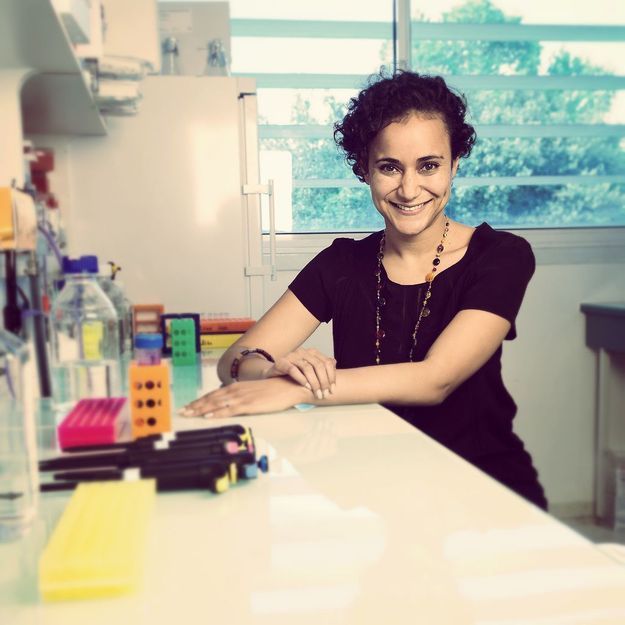
Research often requires patience, but that does not mean that researchers are used to dawdling! What is certain is that this is not the case for this dynamic young woman, Nadine.
Indeed, her energy shines throughout her short but intense professional career: trained in the United Kingdom, Nadine decided to do her master's degree at Paris XI and Paris V, before defending her thesis at the Cochin Institute in 2008. She arrived at the IGH in 2009 for a post-doctorate and was recruited by the CNRS as a research fellow in 2012. Only three years later, she created her research team at the institute.
We can only note today how brilliant her career has been and that she has certainly not finished making a name for herself. Often qualified as "THE researcher to follow", Nadine has already received several distinctions. She was awarded the Prix de l'académie des sciences in 2012, the Sanofi Prize in 2014, the Prix Georges Frêche in 2015 and most recently the CNRS Bronze Medal in 2021. Her hard work has allowed her to obtain prestigious funding: an ERC Starting Grant in 2015 and an ERC Proof of Concept in 2019. But where does she find her motivation ?
First of all, in his subjects of study :
I have always had a particular taste for biology, and more precisely for the mechanisms involved in communication between cells, as well as the responses opposed by the organism to pathogens. This is why the common thread in my career is the study of the molecular mechanisms underlying immune responses, particularly inflammatory responses. In the team, we are more specifically interested in the mechanisms involved in the deregulation of inflammatory processes and how they lead to pathologies.
Second, in the sharing of knowledge :
In my opinion the most fun is to see the young researchers we train gain autonomy on their projects. I think that professional success in this profession depends on the training of young researchers. I like to transmit my passion to them, and also to teach them to build a network of trusted scientific interactions. This is what drives us to explore new horizons." What does it take to become a researcher? "You have to get started, while keeping in mind that this is a profession that is constantly being questioned. It is essential to surround yourself with good people and not be afraid to take risks.
Finally, if we wonder where Nadine will be in 5 years or more, nobody knows :
Each person has his own trajectory, his own rhythm, his own desires. Today, I am looking to consolidate my team and strengthen my themes. This is one of my current concerns. The difficulty of sustaining a research team is a multifactorial problem and a difficult equation to solve.
Whether it is here or elsewhere, Nadine is certainly one of the scientific personalities that we must continue to follow closely in the future !
Marie-Claire's flawless figures
 Society's vision of research is often reduced to researchers in white coats in front of their microscopes or preparing strange coloured mixtures. In addition to the caricatured aspect of this representation, it is above all reductive. Indeed, we too often forget the staff that surrounds this research, a real support to it, and without which all work would be almost impossible.
Society's vision of research is often reduced to researchers in white coats in front of their microscopes or preparing strange coloured mixtures. In addition to the caricatured aspect of this representation, it is above all reductive. Indeed, we too often forget the staff that surrounds this research, a real support to it, and without which all work would be almost impossible.
Marie-Claire belongs to this professional category. She joined the CNRS in 1979 in the catering department with the ambition and guideline of being useful to research. She then joined the Institute of Molecular Genetics of Montpellier (IGMM) as a manager and then joined the management service of the IGH in February 2001.
Since then, Marie-Claire has been a constant support for the research teams and facilitates their work by bringing her knowledge in the field of account management.
During her career, she has been able to see the evolution of the Institute and its growth. Thanks to her dedication, she has been able to adapt to the transformation of the business and allow novices to easily understand often complex procedures. What did she appreciate the most in her job? The diversity of people she has met throughout her career in the research world and environment.
Now, Marie-Claire takes advantage of her status as a young retiree not to count the remaining finances of a project, but to count the number of birds or butterflies at the bend in the road.
Martine Simonelig or the passion for research
Martine Simonelig arrived at the IGH in July 1998 and is one of those researchers whose passion and excellence are at the heart of their work.
Her choice of career was revealed on the benches of the University of Clermont-Ferrand where she studied genetics under Professor JC Bregliano. She continued her training with a thesis at the Institut Jacques Monod in Paris VI, then crossed the Channel to do a post-doctorate at Imperial College London. She then returned to the Institut Jacques Monod where she obtained a position as Research Associate in 1989. Less than ten years later, she moved to the IGH as a group leader.
The Institute allows her to do "the research she wants, at the level she wants". Rewarded for the quality of her work by the CNRS silver medal in 2018, she gives us her vision on her journey:
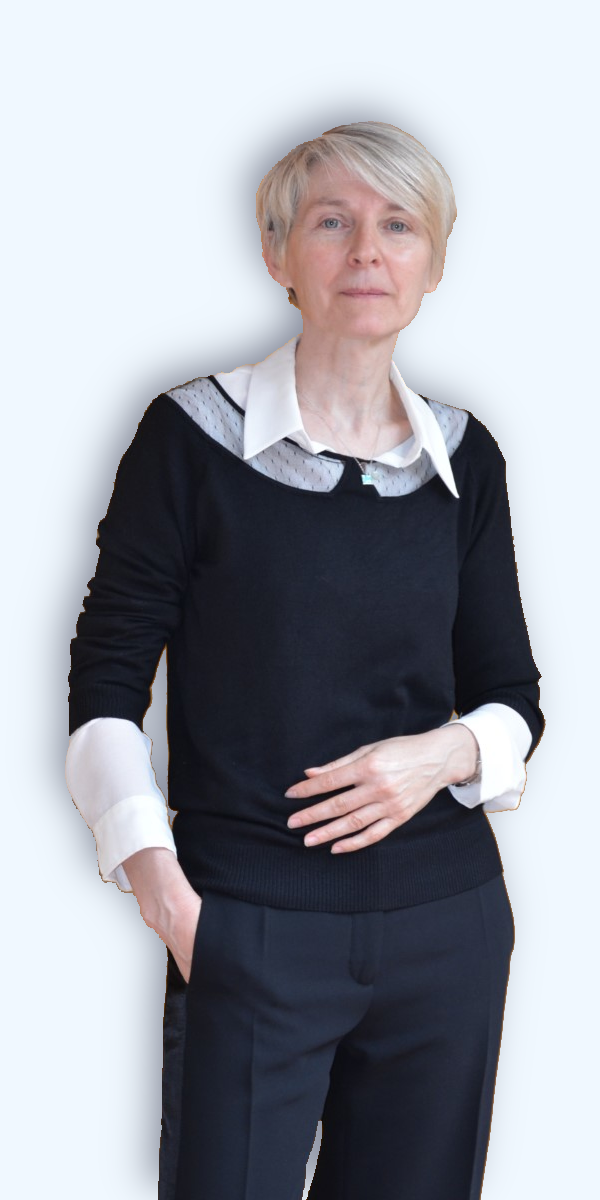
Her work ?
Our core business in the team is basic research. I started research when the only important question was to understand. This is the essential question to which I remain attached. We work in the team on the regulation of messenger RNA, on very fundamental questions in a model organism. I know that our work will contribute to applications in the future, as we had a magnificent demonstration in 2021 with the anti-COVID vaccine
Her career ?
First and foremost: strive for success and excellence for a fulfilling career. I have the impression that to say that one aims for excellence is rather frowned upon now.
Honestly, I consider myself to have been very lucky in my career, with no particular difficulties and no "insurmountable" obstacles. I am sure that this answer would make some reviewers of my papers laugh a lot... I had great opportunities at the IGH, especially as Director of the Department of Genetics, Cell Biology and Development. The quality of our work also depends a lot on the functioning of the Institute as a whole: the support services, the management... I am extremely grateful for all the effort put into the organization and functioning of the IGH which offers us exceptional conditions to carry out our research.
However, in discussions with my daughters, they make me realize that women's careers are often more difficult than men's. Women are less trusted than men. Women are less trusted than men. And this is something that I have felt in my career as well. I also think that for a successful professional career, it is essential to have a good balance with your personal and family life.
What he enjoys most about research?
The new results and the originality of the results. I mean the discovery of completely unexpected mechanisms, which astonish or even delight us. This is not so rare, nature is much more imaginative than we are.
If you are hesitant to embark on research?
I think it is essential to be passionate, otherwise it is too difficult a career. You also have to know that "nothing lasts forever" (as Michel Jonasz said), so you have to persevere if you are going through a difficult period, it will get better at some point.
Sofia's journey
If you think that the path of a researcher is sedentary, you are wrong about her career. We can say that Sofia likes to travel and we can see it, discover her career and her destinations. Her research is international, transdisciplinary and partnership-based. And when we ask her about her work, here is what she answers:
I really enjoy my job. I always try to do the best I can. I enjoy guiding younger people and seeing them advance in their careers and achieve their goals. A science project is like a little journey into the unknown. You start it without really knowing what you're going to learn, who you're going to meet along the way and I find that motivating and exciting. Being able to make a small contribution to society is what motivates me the most. When I look back on my career, I would like to be able to say: 'Yes, I have helped young people, the scientific community, and society to move forward.'
The advice I always give to young people is to take advantage of their dynamism to follow their dreams to the end, to invest themselves fully in what they decide to do so that they can be proud of the result.
Find the route of Sofia by hovering over the numbered steps on the map
- 1- I obtained my bachelor degree in Biology from the University of Crete in Greece in 1995. In parallel to my studies, I worked for two years on neurogenesis in the fly Drosophila melanogaster, in the laboratory of Prof. Christos Del>idakis.
- 2- Thanks to the Erasmus 'freemover' scholarship, I spent one year at Trinity College Dublin, Ireland, in the Bioinformatics Unit of the Department of Genetics, where I worked on the genome duplication of Saccharomyces cerevisiae. I then obtained an MRC scholarship for my PhD thesis which I defended in 1998 at Oxford University, Merton College (UK). For my thesis, I worked in depth on the analysis of viral genome sequences (DNA viruses and retroviruses) and studied their evolution under the supervision of Pr. Paul Harvey, FRS.
- 3- I did a post-doc at Harvard University (USA) in the Department of Molecular and Cellular Biology in the FlyBase team, with a post-doctoral fellowship from the National Institutes of Health (NIH), where I developed software for the drosophila scientific community.
- 4- Then, I was employed as a senior researcher in the Target Discovery Group at Lion Bioscience Research Inc. (LBRI) in Cambridge, MA (USA), where I worked on the human genome data mining project. I was the coordinator between LBRI and Bayer's Diabetes Group in the US and Germany and also the scientist in charge of the patent applications.
- 5- Afterwards I moved to Toulouse, France, where I was appointed director of the bioinformatics department of Endocube, a startup focused on endothelial cells. In 2002, I was recruited by Novartis in Switzerland as a laboratory leader of the functional genomics team. I worked on different sequence analysis projects, especially on proteases.
- 6- In 2002, I was recruited by Novartis in Switzerland as a laboratory leader of the functional genomics team. I worked on different sequence analysis projects, especially on proteases.
- 7- I joined the Biomedical Research Foundation of the Academy of Athens (BRFAA) in July 2004 as a bioinformatics researcher, group leader, in the Basic Research Center II, Division of Biotechnology. I am the inventor/co-inventor of 20 published patents. My group at BRFAA was appointed National Contact Point for Bioinformatics by EMBnet in 2007 and has maintained this position ever since. The themes of my group were: molecular evolution, bioinformatics, protein-protein interactions, transcriptomics and whole genome analysis, comparative genomics, and molecular modeling in a synergistic approach to address biomedical issues. My group has played an important role in Greece also in promoting training in bioinformatics through the organization of workshops and introductory and advanced courses. Throughout my career, I have kept strong international collaborations.
- 8- My group at BRFAA was named National Contact Point for Bioinformatics by EMBnet in 2007 and has maintained this position ever since. The themes of my group were: molecular evolution, bioinformatics, protein-protein interactions, transcriptomics and whole genome analysis, comparative genomics, and molecular modeling in a synergistic approach to address biomedical issues. My group has played an important role in Greece also in promoting training in bioinformatics through the organization of workshops and introductory and advanced courses.
- 9- I spent the summer of 2007 in Lausanne, Switzerland at the Swiss Institute of Bioinformatics. I had a great time (not only for the mountains and the chocolate).
- 10- I took then two ‘sabbatical’ years from 2008 to 2009 thanks to a grant from the Sigrid Jusélius foundation. I went to Helsinki in Finland in Marc Baumann's team at the Biomedicum.
- 11- From September 1, 2014, I was appointed as a Professor at the University of Montpellier II where I was involved in the transdisciplinary teaching of bioinformatics and immunoinformatics in different courses from Bachelor to Master.
- 12- From the year 2018-2019, I am teaching immunogenetics, immunoinformatics in Hanoi, Vietnam for the students of Master 2, Bio/Pharma.
I took the Direction of IMGT®, the international information system in ImMunoGénéTique® (http://www.imgt.org) that Marie-Paule Lefranc, its founder in 1989, made the world reference in immunogenetics and immunoinformatics, from 01/01/2015. I lead the team of about twenty highly motivated people who are passionate about the field. - 13- I was elected director of the Doctoral School CBS2 and from May 15, 2018. A greater international opening of CBS2 has emerged, thanks to trainings delivered by colleagues abroad and the implementation of additional co-tutelles.

